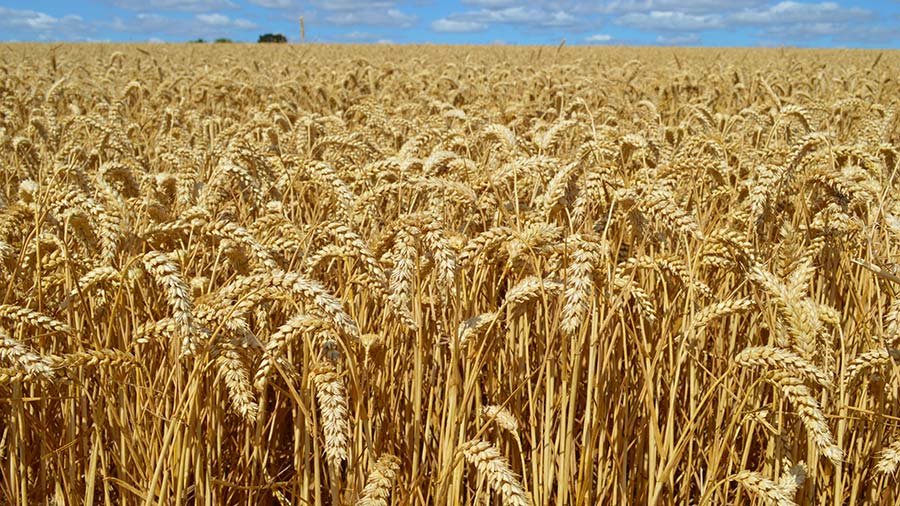High premiums for UK milling wheat driven by quality concerns
 Nigel Pond's Crusoe milling wheat crop © MAG/David Jones
Nigel Pond's Crusoe milling wheat crop © MAG/David Jones Full spec milling wheat remains at a premium of well over £40/t above feed values.
The gap has tightened a little in recent weeks with UK feed wheat futures following global markets and making slight gains.
Prices collected by Farmers Weekly on Friday (16 September) put full spec milling wheat at £303.80/t ex-farm, £43/t more than average feed wheat prices. However, a premium of up to £50/t was being offered in some regions.
See also: Global grain values rise due to market uncertainty
November 2022 feed wheat futures opened at £271.25/t on 16 September, up by £2.25/t on week-earlier levels, and up by £3.5/t since the beginning of September.
Buying interest for milling wheat was reportedly fairly limited, with the premium being maintained due to low proteins this season and imported wheat being expensive.
AHDB figures show delivered milling wheat in the North West was at a premium of £63/t to feed wheat on 8 September, whereas this time last year it was at £41.30/t.
Olivia Bonser, cereals and oilseeds analyst at the AHDB, said strong milling wheat premiums over the past few months were driven by concerns over the quality and quantity of domestic milling wheat this season.
David Brown, grain trader at Openfield, said it was a low protein year in the UK, and was probably down 0.5% on last year due to the weather. The heat has led to higher bushel weights and lower proteins.
“It’s a similar situation across in Germany and France. It’s a lower protein year full stop in Europe, people have to pay more to get the protein requirements,” he said.
Looking forward
Mr Brown said unless millers can change their specifications and use a lower protein, then high premiums are likely to remain, with demand in Europe.
“If the miller can make a loaf of bread with lower protein, then the premiums may come down, but if they can’t, then you have got to pay to try and find it,” he said.
The UK typically imports about 15% of the total amount of milling wheat used to produce flour each year, according to the AHDB.
Ms Bonser said: “Delivered UK milling wheat prices are still some way off being at parity with imported German milling wheat. With feed wheat futures supported by the wider feed grain market, milling premiums could continue to feel the pressure.
“However, with high continental prices, and concerns over protein levels both domestically and across the northern hemisphere, it is likely milling wheat premiums will remain strong for at least the short to mid-term,” she said.
